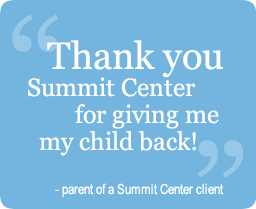This piece first appeared in the October 2018 issue of the 2e Newsletter. Dr. Dan Peters, and other past and current 2e Newsletter Advisory Board members, reflected on 15 years of 2e as the 2e Newsletter founders J. Mark Bade and Linda Neumann transition the publication to a new editor and publisher, Bridges Media. Learn more and subscribe at 2e News.
I am sitting in Camp Summit, watching kids making sock puppets, engaging in LARP (live action role play), playing Dungeons & Dragons, and building a Rube Goldberg contraption. They are all gifted and twice-exceptional children and adolescents, and with very few exceptions, one cannot tell who is “2e” and who isn’t. Why? Because they are interacting with like-minded peers and using their strengths — creativity, divergent thinking, abstract reasoning, and negotiating and debating skills with, of course, a strong orientation toward justice and fairness.
Here we value individuality and “structured flexibility.” The structure reduces anxiety by providing predictability and allowing kids to set their expectations. The flexibility provides choice, making it possible to change one’s mind, to be open to other’s ideas, and to ad-just to circumstances that arise moment by moment, as they often do. These 2e kids are with their gifted peers, and their other exceptionalities are not getting in the way of them showing their strengths and talents.
I discovered twice-exceptionality shortly after finding myself in “gifted land,” not long after the beginning of the 2e Newsletter. I remember my “aha” moment when first hear-ing about the concept of 2e and discovering the newsletter. Of course! A person can be gifted and have a learning or developmental issue. It made perfect sense.
I thought of so many kids I had worked with over the years who were having challenges, yet had something different about them. They didn’t quite fit into the boxes. But why didn’t my colleagues — psychologists and educators — understand this? It seemed so simple. Clearly it was not, especially when it comes to diagnosing and educating these children. Why was everyone focusing on their deficits and overlooking their strengths? That didn’t make sense to me, and still doesn’t.
In the last 15 years I have seen twice-exceptional become a recognizable term. Each year, more and more parents discover this concept and find a community that under-stands their child’s complexities as well as their associated parental challenges. Each year, I hear about, and meet, more educators excited to learn about 2e and “get” 2e children.
However, each day I also meet with parents who have 2e children who go unidentified, misunderstood, and without the support and differentiation they need. These parents are told their child is “fine” and “meeting grade-expected levels,” even though their child is melting down at home, anxious, depressed, hating school, and underperforming. They are told their child does not qualify for testing and certainly not for an IEP or 504 Plan. After all, they are told, there are students with far greater difficulties who have greater needs.
What do I wish for 2e kids in the future? I wish that people will truly understand that one can be gifted and have a learning, developmental, and/or emotional issue. I want them to know that people who are bright with challenges thrive when their strengths are emphasized (differentiated and enriched) and their challenges are supported (accommodated) so that they can perform, in any and all areas, to their full potential.
Furthermore, I hope that the educational system comes to understand that a student can perform at grade level but still have a learning disability and that 2e individuals have special learning needs that qualify them for an IEP or Section 504 Plan. And finally, I wish that all 2e children and adolescents may learn to accept who they are — their strengths and challenges — and have the confidence and courage to persevere and thrive.
This piece first appeared in the October 2018 issue of the 2e Newsletter. Learn more about Camp Summit West, a week-long overnight summer camp designed specifically for gifted students ages 9 through 14, at campsummitforthegifted.com/.


